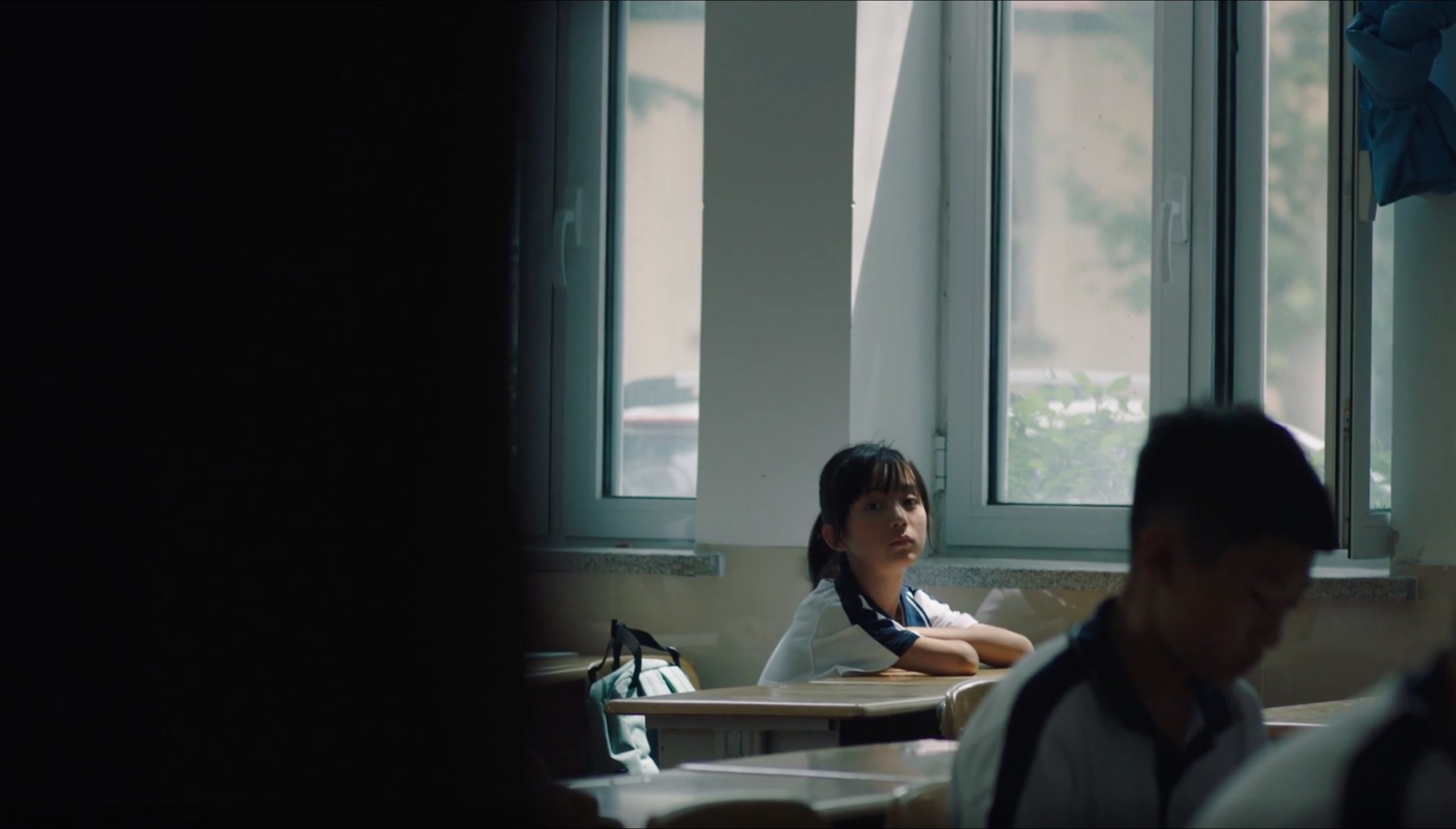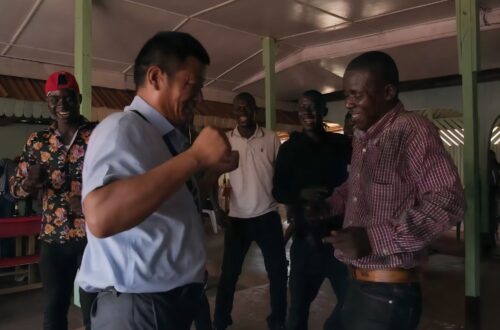‘To Be a Woman’: A feminist showcase by young Chinese directors
Now streaming for free on Montage, 10 short films by women as part of a curated showcase called "To Be a Woman."

In commemoration of the 80th anniversary of Virginia Woolf’s death, the streaming platform Montage is currently screening a showcase of feminist-themed films entitled “To Be a Woman.” The online showcase features 10 short films made by emerging female directors, curated by the Shanghai-based independent filmmaker, curator, and critic Lǚ Yáo 吕遥. Her selection has brought out a rich panorama of stories about women’s experiences and lives in modern China. According to Montage’s page for the program, the films are linked by feminist icon Simone de Beauvoir’s framework of the five stages of life: Childhood, Adolescence, Youth, Middle Age, and Old Age.
As part of the first stage, Yán Yúrán’s 严瑜然 Swim at Night (夜游 yè yóu) and Tong Shengyuan’s (童圣媛 Tóng Shèngyuàn) The Necklace (项链 xiàngliàn) represent childhood. The former follows Yusheng, a little girl dragged to the countryside by her stern father and indifferent mother. While her folks anxiously wait to find out whether their next child will be a boy, Yusheng defies their orders and sneaks off for a swim. In The Necklace, 10-year-old Jiajia lives in a hotel managed by her busy mother. Left to her own devices, Jiajia strikes up a scheme with a housemaid named Chun to sell jewelry that guests have left behind. Chun is trapped with debt, and when her mother refuses to lend a hand, Jiajia comes up with a way to help her friend.
The stage of adolescence is marked by Gāo Wéntíng’s 高文婷 Summer Attic (夏日高阁 xià rì gāo gé). In this short, a teenage migrant worker looks for justice after her father accidentally dies on a construction site in Shenzhen. Then She Went on Stage (罗南的演讲 luō nán de yǎnjiǎng), directed by Wáng Yùzhuō 王毓卓, is the bittersweet story of a middle schooler whose mother is dying of cancer. Luo Nan’s father is mean and useless, so she’s the one who nurses her mom and takes care of the chores. She also fetches her mom daily books and newspapers from a shopkeeper whose significance only gradually dawns on the viewer.
The next two films center on the stage of youth. In Xuē Hàoyuè’s 薛皓玥 Coal City (煤城 méi chéng), a hard-working lab technician named Lulu finds herself being bullied by her parents and future in-laws. Her tyrannical father-in-law (and boss) not only wants Lulu to quit, but her conscience is troubled by the fact that he sells his customers poor-quality coal. While Coal City reflects on the pressure young women feel to be obedient wives and mothers, Zhōu Wéijiā’s 周维加 noirish Away is about a woman abused by her drunken husband and the patriarchal society that protects him. Her only solace is Xi An, a woman who loves her enough to help her cover up a crime that could send them both to jail.
Moving into middle age, Xióng Línruì’s 熊琳瑞 Praying (平头香 píngtóu xiāng) is a spiritual tale about a hospital director who’s pressured to aid a relative who can’t find an organ donor. As she grapples with the dilemma, her son slacks on studying and explores Buddhism. In The Stage of Golden Beach (金海岸大舞台 jīn hǎi àn dà wǔtái), directed by Xiàng Tiāngē 项天歌, a sausage factory worker is haunted by her past, which is tragically repeated when her boss rapes her and gets away with it. When the factory director puts on a kitschy dance show for a visiting minister, Bin plots to sabotage it for revenge.
The final stage of the showcase is old age. In Zhāng Hánbèi’s 张晗贝 The Daughter (一朵爱莲 yī duǒ ài lián), dutiful daughter Ai Lian is stumped on what to do with her elderly mother. Grandma can’t take care of herself, and her nurse is leaving, but the family refuses to put her in a nursing home, leaving Ai Lian to deal with her. The elderly lady of Dù Qián’s 杜潜 Bing Yan (冰岩 bīng yán) is healthy and independent, but her golden years are unfulfilling. She spends her time watching a polar bear at an exhibit, dreaming about the world outside her bubble. After Bing Yan meets a sleazy agent from a tourist agency, she’s ecstatic at the promise of a trip to the North Pole. Her son is completely opposed to the idea, however, more interested in finding her a new husband than letting Bing Yan live her own life.
The films featured in “To Be a Woman” are often low-key and ambiguous, and the endings aren’t necessarily always happy or conclusive. Paraphrasing the great Italian director Michelangelo Antonioni, curator Lu Yao remarked in her own words that “sometimes all a film needs to do is to question, not to resolve.” When asked about any thematic connections between the films, Lu Yao replied that all 10 shorts were inspired by their filmmakers’ childhood memories and personal experiences. She noted that the characters depicted in these films might be called “rebels,” but she doesn’t interpret them as the kind of people looking to overturn a moral system. “They question,” Lu Yao said, “and go on with their lives.” But while these heroines aren’t revolutionaries, even in the more depressing stories, there’s a strong sense of independence and resilience as these characters discover who they are and assert what they want.
The “To Be a Woman” showcase will be hosted virtually on Montage until April 11. The program is free to watch, and is available to view here. A virtual event in Mandarin with the filmmakers will also be held on April 11 at 7 p.m. PDT. It will be moderated by Cher, host and producer of the podcast “Gentle Human” 温柔人类, and feature the directors of The Necklace, Then She Went On Stage, Coal City, Praying, and The Daughter.






